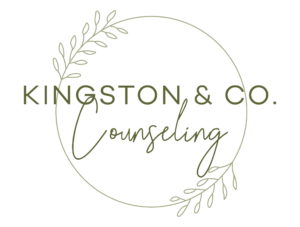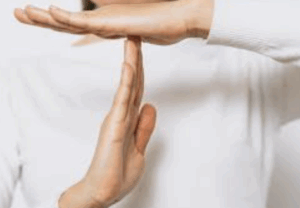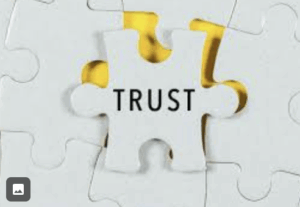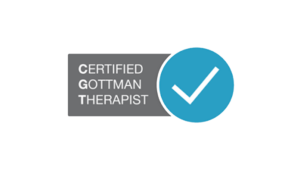TikTok has become one of the most influential platforms of our time, with over 1 billion users worldwide scrolling, liking, and sharing short-form videos. While the app can be a source of entertainment, education, and community, it also has a significant impact on mental health. From viral self-care tips to misinformation about mental illness, TikTok’s role in shaping mental well-being is a topic worth exploring.
So, is TikTok helping or harming our mental health? Let’s break it down.
The Positive Side: How TikTok Can Support Mental Health
While social media often gets a bad reputation, TikTok has actually played a role in destigmatizing mental health conversations. Here’s how:
1. Access to Mental Health Education
Therapists, psychologists, and mental health advocates have taken to TikTok to share bite-sized educational content about topics like anxiety, depression, trauma, and self-care. This has made mental health information more accessible than ever, helping people recognize symptoms and learn coping strategies.
✔️ Example: A licensed therapist might post a video explaining grounding techniques for panic attacks, giving viewers practical tools to manage anxiety.
🔗 If you’re looking for professional support beyond TikTok, our individual therapy services can provide personalized guidance.
2. A Sense of Community
Many users find comfort in TikTok communities where they can connect with others who have shared experiences. Hashtags like #MentalHealthAwareness, #AnxietyStruggles, and #HealingJourney allow people to discuss their challenges openly, reducing feelings of isolation.
✔️ Example: Someone struggling with social anxiety might find reassurance in videos where others share similar experiences, making them feel less alone.
3. Exposure to Therapy and Coping Strategies
TikTok has introduced many people to the idea of therapy, making it feel less intimidating. Seeing mental health professionals normalize therapy and self-improvement can encourage more people to seek professional help.
✔️ Example: A therapist might post a video about how to set emotional boundaries, inspiring someone to explore couples therapy or individual counseling.
The Negative Side: How TikTok Can Harm Mental Health
Despite its benefits, TikTok also has downsides when it comes to mental health. Here are some of the biggest concerns:
1. Misinformation About Mental Health
While TikTok has plenty of qualified professionals sharing valuable advice, anyone can post about mental health—even those without expertise. This has led to misinformation, with some users self-diagnosing based on oversimplified or inaccurate videos.
⚠️ Example: A video listing common ADHD symptoms might lead viewers to believe they have the disorder, even if they don’t. While self-awareness is important, self-diagnosing without a professional evaluation can be harmful.
✔️ Solution: If you’re concerned about your mental health, it’s best to seek guidance from a licensed therapist rather than relying solely on social media.
2. Doomscrolling and Overstimulation
TikTok’s algorithm is designed to keep users engaged for as long as possible, but endless scrolling can take a toll on mental health. Constant exposure to emotionally charged content—whether uplifting or distressing—can lead to anxiety, burnout, and emotional exhaustion.
⚠️ Example: Someone struggling with depression may find themselves stuck in a cycle of watching sad or triggering videos, reinforcing negative emotions instead of helping them heal.
✔️ Solution: Setting time limits for social media use and engaging in offline self-care activities (like mindfulness, journaling, or therapy) can help maintain a healthier balance.
🔗 If you struggle with anxiety or emotional overwhelm, check out our mindfulness techniques for coping strategies.
3. Toxic Comparison and Unrealistic Expectations
TikTok is full of highlight reels—people sharing the best, most polished moments of their lives. This can lead to unrealistic comparisons and low self-esteem, especially for young users.
⚠️ Example: Someone watching “day in the life” videos of seemingly perfect relationships might start to feel inadequate in their own relationship, even if what they see online isn’t the full picture.
✔️ Solution: Remember that social media is curated and doesn’t reflect reality. Practicing self-compassion and limiting exposure to triggering content can help reduce negative self-comparisons.
How to Use TikTok in a Healthy Way
While TikTok has both positive and negative effects on mental health, the key is mindful consumption. Here are some tips to create a healthier relationship with the platform:
✅ Follow credible sources: Seek mental health advice from licensed therapists and professionals rather than influencers without expertise.
✅ Limit screen time: Use TikTok in moderation to avoid overstimulation and doomscrolling.
✅ Take breaks when needed: If TikTok is making you feel anxious or insecure, step away and engage in offline activities that bring you joy.
✅ Think critically about mental health content: If you suspect you have a mental health condition, consult a professional rather than relying on self-diagnosis from social media.
✅ Curate your feed: Engage with uplifting, educational, and positive content while avoiding content that negatively impacts your mood.
Final Thoughts: A Tool for Good or Harm?
TikTok can be both helpful and harmful for mental health, depending on how it’s used. While it provides a platform for mental health awareness and community support, it also exposes users to misinformation, unrealistic comparisons, and emotional overload.
If TikTok is negatively affecting your mental well-being, consider setting boundaries and seeking professional support. At Kingston & Co Counseling, we help individuals and couples navigate the challenges of modern life—including the impact of social media on mental health.
👉 Need support beyond TikTok? Contact us today to schedule a session and take control of your mental health.
✨ Social media is a tool—use it wisely, and don’t let it control your well-being. ✨







